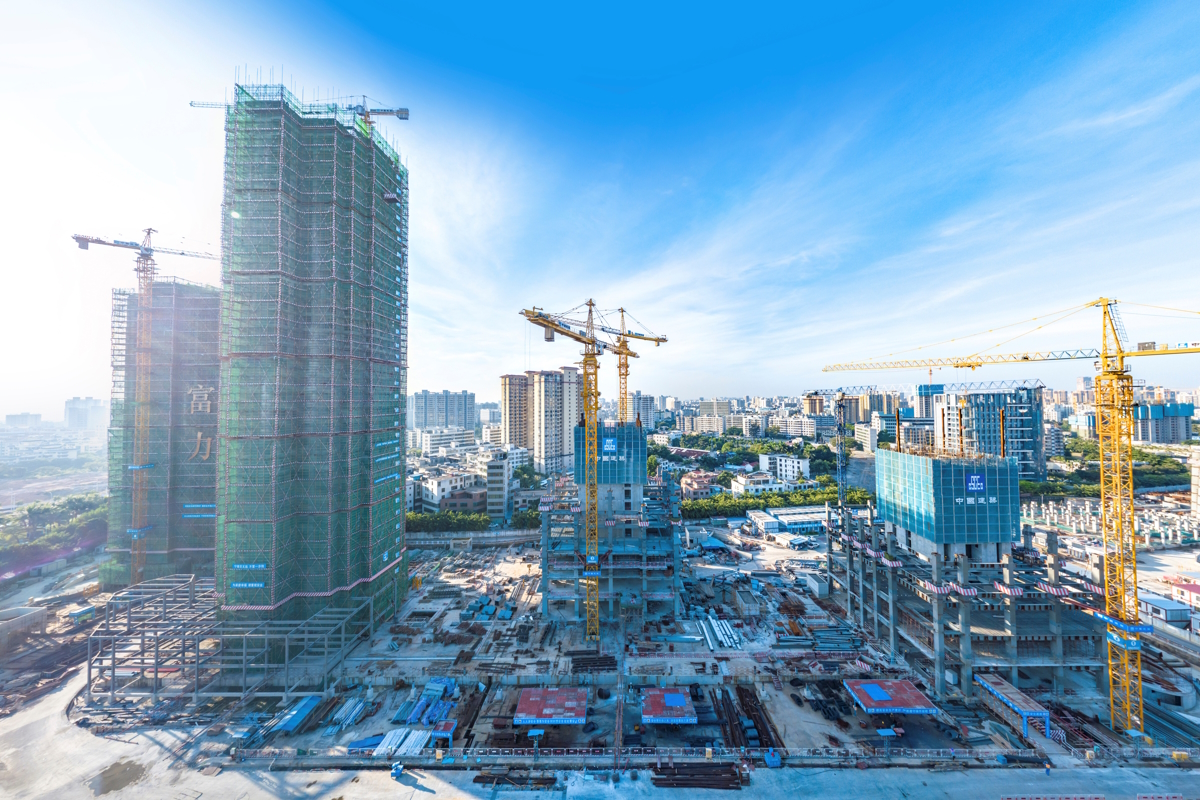China’s property sector is showing further signs of a recovery, albeit unevenly. Some developers are restructuring their debt, and return trading, while others are facing a delisting.
Property giant Sunac China Holdings which defaulted last year just resumed trading after being suspended on April 1 when the company failed to meet the March 2022 deadline for submitting its annual results. Restrictions were removed on Thursday after the company released its overdue earning figures in a report to the Hong Kong stock exchange.
Sunac saw a record slump in its share prices the same day. On April 13, 2023, the company’s shares dropped as much as 59% in Hong Kong. At the midday trading break, the shares were down 53.5%.
Following Logan Group, Kaisa Group Holdings and Jingrui Holdings, Sunac is the fourth distressed Chinese developer to resume trading in Hong Kong.
At least 20 Chinese real estate firms face delisting
Sunac missed a $29.5 mn interest payment in March of 2022. Thus, it became one among many China property developers who defaulted on their debt repayments last year.
Debt issues in the sector first began to emerge after the Chinese government implemented its ‘three red lines’ strategy to regulate overleveraged property developers in mid-2020.
Due to this and the adverse effects of the Covid-19 pandemic, the Chinese property market shrank by as much as 5.1% year on year in 2022. This adversely affected Chinese economic growth as the property and infrastructure sector accounts for 20% to 30% of the country’s GDP.
As for the companies, a credit crunch in the China property sector resulted in the worst earnings for real estate developers in at least seven years, as per Bloomberg estimates. Only 5% of the companies made a profit whereas another 5% increased their net income over the previous year.
Stock trading was suspended for 23 mainland Chinese developers that are listed in Hong Kong. Additionally, Chinese developer Cinic Holdings’ listing on the Hong Kong Stock Exchange was revoked last week after it didn’t comply with trading resumption requirements.
According to South China Morning Post, at least 20 Chinese real estate firms, including Fantasia Holdings Group, and China Evergrande Group, run the risk of being delisted. Furthermore, 21 of the 65 builders listed in Hong Kong have issued negative profit warnings, while 13 had trading halts and missed their results deadlines.
“Accumulating pressures from the unresolved property crisis could trigger a sharp retrenchment in aggregate demand, with adverse macro-financial feedback loops and potentially large external spillovers,” the International Monetary Fund (IMF) said in a report.
However, the China property sector has been on the mend owing to the Chinese government’s relief measures since November 2022. In its latest plan, the government has earmarked 450 bn yuan (~$67 bn) in funding and debt extensions. This encompasses everything from bank credit for bond issuances to equity financing for indebted developers, as well as relieving liquidity problems by allowing companies to access more money from pre-sales.
Sunac and others restructuring debt
Also, prominent China property developers have begun speeding up the process of debt restructuring. Last week, the China Evergrande Group said that it had agreed with some of its creditors to settle $19.15 bn in foreign borrowings. Shimao Group issued a statement the same day announcing that it has sent debt restructuring plans to its offshore creditors. Also, Sunac has unveiled a plan to restructure its debt worth US$9.1 bn.
What is more, buyers are returning to the Chinese housing market after hundreds of homeowners joined demonstrations over unfinished building projects last year and threatening to boycott or stopped mortgage payments.
Meantime, the Chinese government has loosened payment requirements for homebuyers in the country along with pressurising developers to resume projects which were previously stalled. In the Chinese city of Zhengzhou, the local government provided 10 bn yuan (~$1.5 bn) to builders to resume work.
As a result, property sales volume in 30 major Chinese cities increased 44% year on year in March, following a 13% fall in January and February. In February, 55 of the 70 main cities surveyed by the Chinese government saw a rise in housing prices, compared to only 15 in December 2022.
New home prices in 70 Chinese cities increased by 0.3% in February 2023 from the preceding month. According to data from the National Bureau of Statistics of China, the cost of housing also increased by 0.12% on the secondary market. As per the latest central bank survey, the proportion of households planning to buy property in the upcoming quarter increased to 17.5%.
“Homebuyers are finally back in action in China. Our on-the-ground observations from recent research trips have reaffirmed data showing a rebound in sales activity in the major cities,” stated Fidelity International in an insight.
“But consumer confidence remains fickle following the sector’s recent shake-up, and a fully-fledged real estate recovery this year is not a given,” writes Victoria Mio, Head of Equity Research, Asia Pacific at Fidelity.










 Australia
Australia China
China India
India Indonesia
Indonesia Japan
Japan Malaysia
Malaysia Philippines
Philippines Singapore
Singapore South Korea
South Korea Taiwan
Taiwan Thailand
Thailand Vietnam
Vietnam
 Germany
Germany Hong Kong
Hong Kong Switzerland
Switzerland Singapore
Singapore
 United Kingdom
United Kingdom








